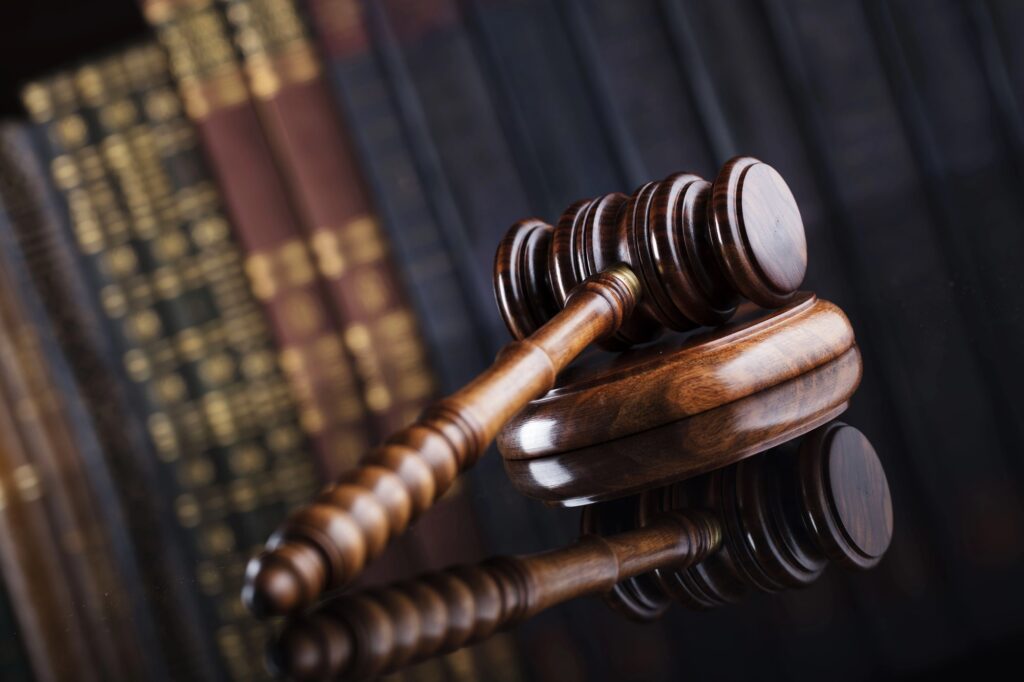
Losing a family member is devastating under any circumstances. When that death results from someone else’s negligence, recklessness, or intentional actions, the pain is compounded by the knowledge that it could have been prevented. Wrongful death claims provide a legal avenue for families to seek justice and compensation when their loved one dies due to another party’s wrongful conduct.
Our friends at Goldberg Injury Lawyers discuss how these cases address both the financial and emotional losses families endure. A wrongful death lawyer handles claims arising from car accidents, medical malpractice, workplace incidents, defective products, criminal acts, and other situations where negligence or misconduct caused a preventable death. These attorneys understand the legal framework for these claims and help families hold responsible parties accountable during an incredibly difficult time.
Common Causes Of Wrongful Death
Traffic accidents represent one of the leading causes of wrongful death claims. According to the National Highway Traffic Safety Administration, tens of thousands of people die in motor vehicle crashes annually. These deaths often result from drunk driving, distracted driving, speeding, or other negligent behaviors.
Medical malpractice kills patients through misdiagnosis, surgical errors, medication mistakes, birth injuries, anesthesia errors, and failure to treat serious conditions. When healthcare providers fail to meet accepted standards of care, patients die from complications that proper treatment would have prevented.
Workplace accidents in construction, manufacturing, and other dangerous industries claim workers’ lives each year. Employer negligence in maintaining safe work environments, providing proper training, or following safety regulations often contributes to these deaths.
Defective products can kill consumers when manufacturers release dangerous items without adequate testing or warnings. Defective vehicles, medical devices, pharmaceuticals, and consumer products all generate wrongful death claims when design or manufacturing flaws prove fatal.
Premises liability incidents occur when property owners fail to maintain safe conditions. Slip and fall accidents, swimming pool drownings, inadequate security leading to assaults, and other hazardous conditions can result in death.
Who Can File These Claims
State laws determine who has legal standing to file wrongful death lawsuits. Most states allow the deceased person’s immediate family members to bring claims. This typically includes surviving spouses, children, and parents of unmarried children.
Some jurisdictions permit other relatives like siblings, grandparents, or extended family members to file if no immediate family exists. A few states require the deceased person’s estate representative to file the claim on behalf of all beneficiaries.
The specific rules vary significantly by location, making it important to understand your state’s requirements. Some states have strict hierarchies determining who can file, while others are more flexible depending on circumstances.
Personal Representative Role
In many states, the personal representative or executor of the deceased’s estate files the wrongful death claim. This person pursues the case on behalf of all eligible beneficiaries. Damages recovered through the lawsuit become part of the estate and are distributed according to state law or the deceased’s will.
Types Of Recoverable Damages
Wrongful death claims can include several categories of compensation. Economic damages cover financial losses including medical expenses for treatment before death, funeral and burial costs, lost income the deceased would have earned, and loss of benefits like health insurance or pension contributions.
Future economic losses account for the financial support the deceased would have provided to family members over their expected lifetime. This calculation considers the deceased’s age, earning capacity, career trajectory, and life expectancy.
Non-economic damages address the intangible losses families suffer. These include:
- Loss of companionship and emotional support
- Loss of guidance and counsel
- Loss of consortium for surviving spouses
- Mental anguish and emotional distress
- Loss of protection and care
Some states allow recovery for the deceased’s pain and suffering between the time of injury and death if they survived for any period after the incident causing their death.
Punitive damages may apply when the defendant’s conduct was particularly egregious, involving willful misconduct, gross negligence, or intentional harm. These damages punish outrageous behavior and deter similar conduct by others.
Proving A Wrongful Death Claim
Wrongful death claims require establishing the same elements as personal injury cases. First, you must prove the defendant owed a duty of care to the deceased. This duty exists in various relationships like drivers owing other motorists safe operation, doctors owing patients competent care, and property owners owing visitors safe premises.
Second, you must show the defendant breached that duty through negligence, recklessness, or intentional wrongdoing. This involves demonstrating how their actions or failures to act fell below reasonable standards.
Third, causation links the breach directly to the death. You must prove the defendant’s conduct caused or substantially contributed to your loved one’s death. This can be challenging when multiple factors played roles or when the deceased had pre-existing health conditions.
Finally, damages must be quantified. This includes both economic losses with specific dollar amounts and non-economic damages that are harder to calculate but equally real.
The Investigation Process
Building a strong wrongful death case requires thorough investigation. We gather evidence from accident scenes, obtain police reports, collect witness statements, and secure all available documentation of the incident that caused death.
Medical records and autopsy reports provide information about injuries sustained, cause of death, and whether earlier intervention could have prevented the fatal outcome. In medical malpractice wrongful death cases, we consult with medical professionals who review records and provide opinions about whether care met accepted standards.
Accident reconstruction professionals analyze traffic crashes, workplace accidents, or other incidents to determine how they occurred and who bears responsibility. Their testimony helps juries understand technical aspects of what happened.
Employment records, tax returns, and financial documents establish the deceased’s earning capacity and financial contributions to their family. This evidence supports claims for lost income and financial support.
Statute Of Limitations Considerations
Every state imposes strict deadlines for filing wrongful death lawsuits. These statutes of limitations typically range from one to three years from the date of death, though some states calculate from the date of the incident that caused death.
Missing these deadlines means permanently losing the right to pursue compensation, regardless of how strong your case might be. Some exceptions extend deadlines in specific circumstances, such as when defendants fraudulently concealed their role or when deaths resulted from long-latency conditions.
The complexity of these rules makes early consultation with an attorney important. Waiting too long creates problems even if you remain within the legal deadline, as evidence disappears and memories fade over time.
Wrongful Death Versus Survival Actions
Some states distinguish between wrongful death claims and survival actions. Wrongful death claims compensate family members for their losses resulting from the death. Survival actions compensate the deceased’s estate for losses the deceased suffered before dying, including their pain and suffering, medical expenses, and lost wages during survival time.
Understanding which types of claims apply in your jurisdiction affects what damages you can pursue and who receives compensation. Some states combine both theories into single actions, while others require filing separate claims.
Settlement Versus Trial
Many wrongful death cases settle before trial. Defendants and their insurance companies often prefer avoiding the uncertainty and expense of jury trials, particularly when liability is clear. Settlements provide certainty and faster resolution than litigation.
However, settlement offers don’t always reflect the full value of your losses. Insurance companies typically start with lowball offers hoping families will accept quick payouts. We evaluate all settlement offers carefully against potential trial outcomes and advise whether accepting or continuing litigation serves your interests.
Trials involve presenting evidence to juries who decide liability and damages. While trials take longer and involve more uncertainty, they sometimes result in significantly higher compensation than settlement negotiations produce.
The Emotional Aspect Of These Cases
Pursuing legal action while grieving is emotionally exhausting. Many families struggle with feelings of guilt, anger, and overwhelming sadness. Some worry that filing claims makes them seem money-focused rather than concerned about justice.
The reality is that wrongful death claims serve multiple purposes. They provide financial resources families need after losing a wage earner or caregiver. They hold negligent parties accountable for preventable deaths. They can force changes preventing future deaths. Seeking fair compensation doesn’t diminish your grief or love for your family member.
Moving Forward After Loss
Losing someone you love because of another person’s negligence or wrongdoing creates pain that never fully heals. The financial struggles that often follow compound your grief. No amount of money replaces your loved one, but compensation can provide financial security and acknowledge the value of the life lost.
If you’ve lost a family member due to someone else’s negligence or intentional actions, you have legal rights that deserve protection. These cases are time-sensitive and require prompt action to preserve evidence and meet filing deadlines. Contact an attorney who handles wrongful death claims to discuss what happened and explore your legal options. Holding responsible parties accountable won’t bring your loved one back, but it can provide justice, prevent future tragedies, and help your family move forward with the financial support you need and deserve.


